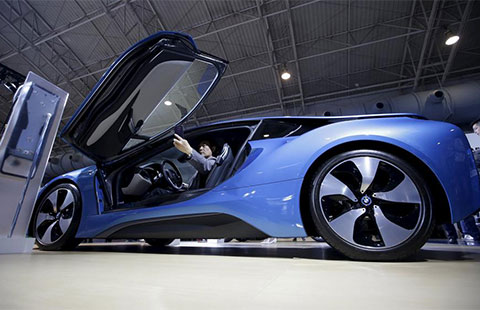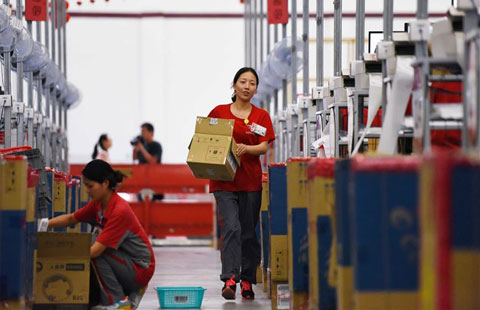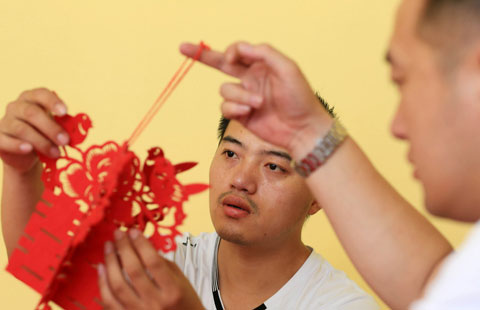Smart City Expo highlights ICT
(chinadaily.com.cn) Updated: 2011-11-30 09:39Thanks to modern technology, cities can now be converted into sensory beings that communicate their needs and their responses to certain scenarios in real time. In order to efficiently respond to challenges in areas such as transit, energy and environmental protection, tomorrow's cities must establish systems capable of handling the massive amount of data generated by their residents and infrastructure.
This is one of the fundamental ideas behind the concept of a Smart City, a moniker proudly used by cities that wish to demonstrate their commitment to employing innovative measures to improve the lives of their residents. It is also the leitmotif of this first Smart City World Congress, held in Barcelona, and was the central theme of the talk given by keynote speaker Carlo Ratti, director of the SENSEable City Laboratory at MIT.
Ratti began his talk by comparing the changes that began in Formula 1 racing 20 years ago to the changes that cities will undergo. At that time, engineers sought higher-performing motors and better aerodynamics. However, these advances alone were not enough to guarantee victory: every Formula 1 team now collects and analyzes data on hundreds of parameters relating to the vehicle, the track and the racing conditions, in order to make the best decisions at every instant. According to Ratti, the cities of the future will have to function analogously. Urban centers already generate thousands of data points in real time; thus, all they need now is systems to capture and crunch these data, so that they can respond accordingly.
To illustrate the potential of this concept, Ratti shared results from various projects being undertaken at the SENSEable City Lab. In one example, he showed a map of Spain in which credit card activity had been tracked, revealing the intensity and type of commerce transactions over the course of several days. Another map indicated the path traveled by different types of waste that had been deposited in receptacles equipped with GPS sensors. Another interesting case was that of a telephone conversation map of the UK in which "real communities" were drawn: the resulting frontiers did not coincide with existing administrative or political boundaries.
Beyond the technological challenge
Following the stimulating visual presentation by Carlo Ratti was the plenary session, in which various experts discussed the best ways for cities to adopt the vision that he had outlined. The session began with a comment by its moderator, Joan Majo, chairman of Knowledge Circle: "Tools are just tools; the results depend on how you use these tools".
Speaking along the same lines, Jonathan Warenham, director of the Information Management department at ESADE, affirmed that the role of technology is a "given" and emphasized the importance of fomenting creation of the services that technology makes possible. He referred to the possibilities offered by open platforms as a motor for open innovation initiatives, while highlighting potential challenges related to transparency, privacy and improper use of information.
Angel David Garcia, Director of Estrategias y Alianzas M2M at Telefonica, alluded to the so-called "Internet of Things": services and business opportunities enabled by communication between two machines. He explained that the Spanish company is currently working on various projects in this area.
An opportunity for southern Europe
Jordi Botifoll, senior vice-president for EMEA at Cisco Systems, alluded to the current economic scenario in the countries of southern Europe, for whom innovation must serve as an economic driving force. His message: that implementation of Smart City initiatives represents a major opportunity for these countries to close the competitiveness gap that separates them from other European states.
Donald C. Clark, vice-president of Global Industry Solutions at Invesys, also spoke in the context of today's economy, although he affirmed that cities must also consider the costs of urban initiatives, rather than just the quality or availability.
Tobias Martinez, CEO of Abertis Telecom, reiterated that the Smart City concept was not simply borne of an abstract theory or a need to sell more technology, but rather of real demands from today's urban residents. He emphasized the importance of close collaboration between the public and private sectors as a way to overcome the economic challenges mentioned by the other speakers.
Bruno Berthon, Director of Worldwide Sustainability at Accenture, argued that the implementation of Smart City initiatives, beyond just overcoming technological hurdles, must respond to the challenges implied by current governance systems. He believes that the number and fragmentation of players involved in today's cities will make it rather difficult to implement truly transformative measures.
- COSCO Shipping Bulk sets sail
- Tencent may acquire stake in game developer Supercell
- Alibaba says it does fight fake products really
- Chinese investments in soccer come under scrutiny
- Jack Ma proposes digital free trade zones for small companies
- Top 10 most valuable car brands in the world
- Danish company invests millions to curb pollution
- B20 summit to focus on global growth


















